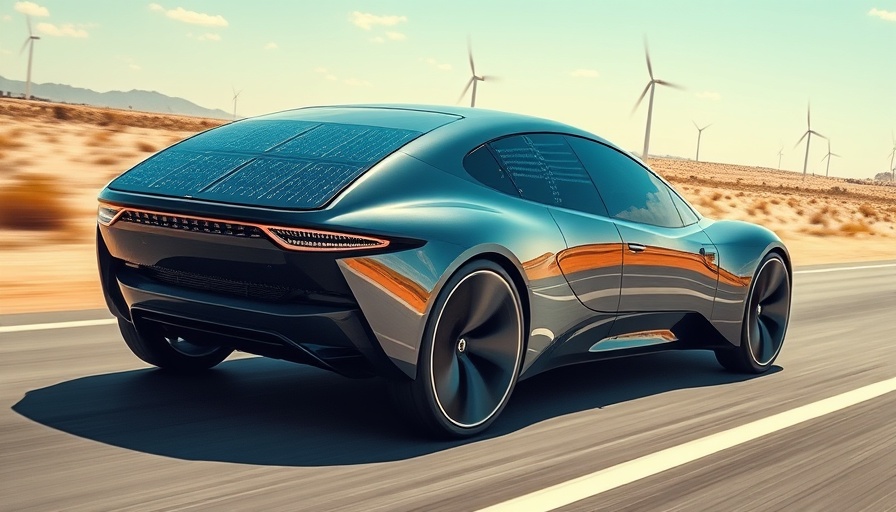
The Hope and Hype of Solar-Powered Cars
We've always dreamed of a world where our vehicles run solely on the sun's boundless energy, effortlessly gliding along the roads with zero emissions. The concept of solar-powered cars seems to embody that vision—a future free from gas stations and old energy sources. This alluring dream is backed by companies like Lightyear and Aira, which present advanced prototypes and ambitious claims about the potential of solar vehicles. However, is this more than an exciting fantasy?
In Solar Powered Cars: The Ultimate Green Tech or Just a Gimmick?, the discussion dives into the complexities of solar car technology, exploring key insights that sparked deeper analysis on our end.
Understanding the Technology Behind Solar Cars
To grasp the implications of solar-powered vehicles, we must dive into the technology driving them. The fundamental idea revolves around covering a car’s surface with efficient photovoltaic solar panels designed to harness sunlight. Currently, Lightyear claims its vehicle, the Lightyear Zero, can achieve up to 70 kilometers of daily driving range solely from solar power by 2025, while Aptura aims to extend that range to an impressive 1,000 kilometers through a mix of solar energy and hybrid charging.
A Closer Look at Efficiency: Bridging Dreams and Reality
On paper, these figures appear staggering, inspiring optimism for a cleaner transportation future. However, a closer examination reveals significant limitations. Typically, a vehicle’s surface area allows for around six square meters of solar panels. Even with top-notch panels boasting a 25% efficiency rate, only about 300-400 watts could be captured under ideal conditions, translating to only 20-30 kilometers of driving range. This stark disparity raises doubts about the practicality of solar cars in myriad weather conditions.
Weather Dependability: A Major Challenge
Imagine owning a solar-powered vehicle in locations renowned for excessive cloud cover, such as Seattle or London. According to data, cloud cover can drastically diminish solar output by up to 70%, particularly in winter months with shorter days and weaker sunlight. This means owners might invariably find themselves charging the vehicle—neglecting the core benefit of solar power. It paints a concerning picture of the practical gap between potential and reality.
The Hefty Price Tag
Current solar vehicles come with a significant financial hurdle. The intricate manufacturing processes involved in crafting specialized solar panels can inflate the price tag by $10,000 to $20,000. Comparatively, a home solar energy system, which can charge multiple conventional electric vehicles, costs about $5,000, illustrating that negating fossil fuels is feasible without resorting to expensive solar standardization.
Assessing Solar Cars: Niche or Gimmick?
After meticulously weighing the technology's efficiencies and challenges, it's fair to label current solar-powered cars as niche products catering to a select audience. They are luxury items rather than ultimate solutions. With feasible alternatives already in existence, the cost-effectiveness and practicality remain questionable. While alluring visions may attract curious consumers, skepticism holds a firm ground.
The Future: A Path Toward Hybrid Solutions
Looking ahead, though the dreams of fully solar-powered cars may not be immediately realized, hybrid solutions that employ solar energy to supplement battery power could manifest in the auto industry more widely. Adapting solar panels to provide auxiliary power for internal features—like air conditioning—can maximize efficiency without sacrificing practicality or affordability. This method aligns more closely with real-world driving needs and positions the technology’s applications in a favorable light.
Conclusion: Your Thoughts on Solar Vehicles?
The future of solar-powered cars presents an intriguing landscape, dotted with promises and challenges. While this technology holds some potential for enhancing our transportation dynamics, real-world viability seems, for now, a distant dream. What are your views on solar-powered vehicles? Would you consider investing in such technology despite its current limitations? We welcome your thoughts, and let's engage in this essential discourse about the intersection of innovation and sustainability.
 Add Row
Add Row  Add
Add 




Write A Comment